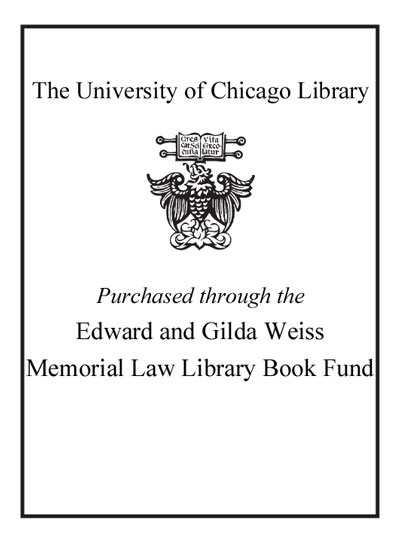Rwanda's Gacaca courts : between retribution and reparation /
Saved in:
| Author / Creator: | Bornkamm, Paul Christoph. |
|---|---|
| Imprint: | Oxford ; New York : Oxford University Press, c2012. |
| Description: | xxix, 242 p. ; 24 cm. |
| Language: | English |
| Series: | Oxford monographs in international humanitarian and criminal law Oxford monographs in international humanitarian and criminal law. |
| Subject: | |
| Format: | Print Book |
| URL for this record: | http://pi.lib.uchicago.edu/1001/cat/bib/8625970 |
Table of Contents:
- Table of Cases
- Table of Treaties and Other Relevant International Instruments
- Table of Legislation and Other Relevant National Instruments
- List of Abbreviations
- Introduction
- I. Gacaca: Transitional Justice in Rwanda
- II. Between Retribution and Reparation: An International Legal Framework for States in Transition
- III. Scope of the Study
- IV. Methodology
- 1. A Short History of the Rwandan Genocide and its Aftermath
- I. The Origins of the Hutu-Tutsi Antagonism
- II. The First and Second Republic
- III. Genocide 1990-94
- IV. The Refugee Crisis and the War in Zaire/Congo
- V. Rwanda Today
- VI. Dealing with the Events between 1990 and 1994
- 2. The Implementation of Modern Gacaca
- I. Traditional Gacaca
- II. The Introduction of lnkiko Gacaca
- III. The Structure of the Gacaca System
- IV. The Jurisdiction of Gacaca Courts and the Applicable Substantive Law
- V. The Pre-Trial Phase: Investigation and Categorization
- VI. The Trial Phase
- VII. The Appeals Phase
- VIII. Sanctions Imposed by Gacaca Courts
- IX. Civil Claims for Damage to or Loss of Property
- X. Monitoring Gacaca Activities
- 3. Transitional Justice Through Prosecution
- I. The Prosecution of Crimes under International Law: Rwanda's Obligations
- II. The Limits of Prosecution
- III. The Implementation of the Duty to Prosecute: Trials and Local Mechanisms
- IV. Locating Gacaca between Retributive and Restorative Justice
- V. Gacaca Courts and International Law
- 4. Transitional Justice Through Reparation
- I. The Right to Reparation for Human Rights Violations under International Law
- II. Reparation for Human Rights Violations in Post-Genocide Rwanda
- III. Who Is Entitled to Reparation?
- IV. Who Is Liable to Pay Reparation?
- V. Conclusion
- Conclusion
- I. Summary of the Study's Principal Results
- II. Outlook
- III. Learning Lessons from the Gacaca Experience
- Appendix
- Glossary
- List of References
- Books and Articles
- Print and Online Journalism
- Reports and Manuals
- International Organizations: Resolutions, Reports, and Other Instruments
- Index

